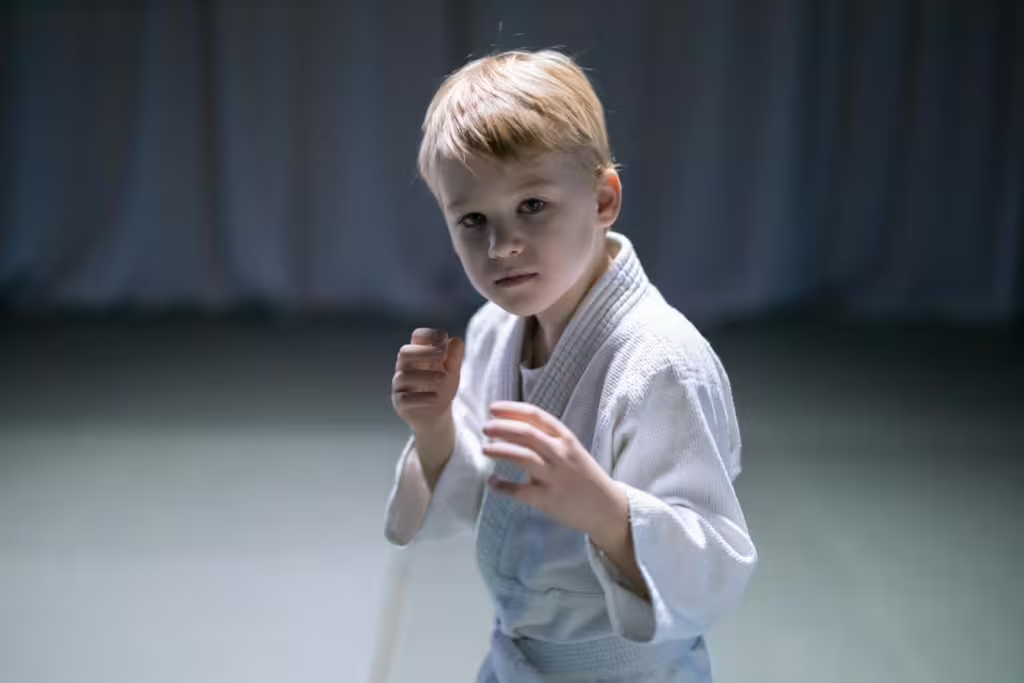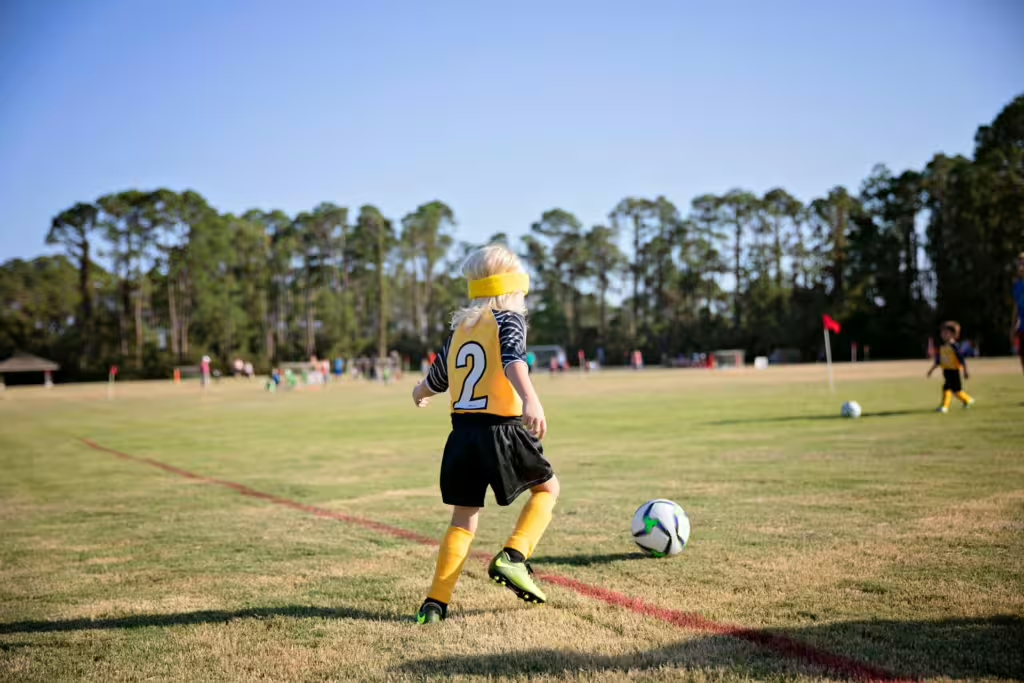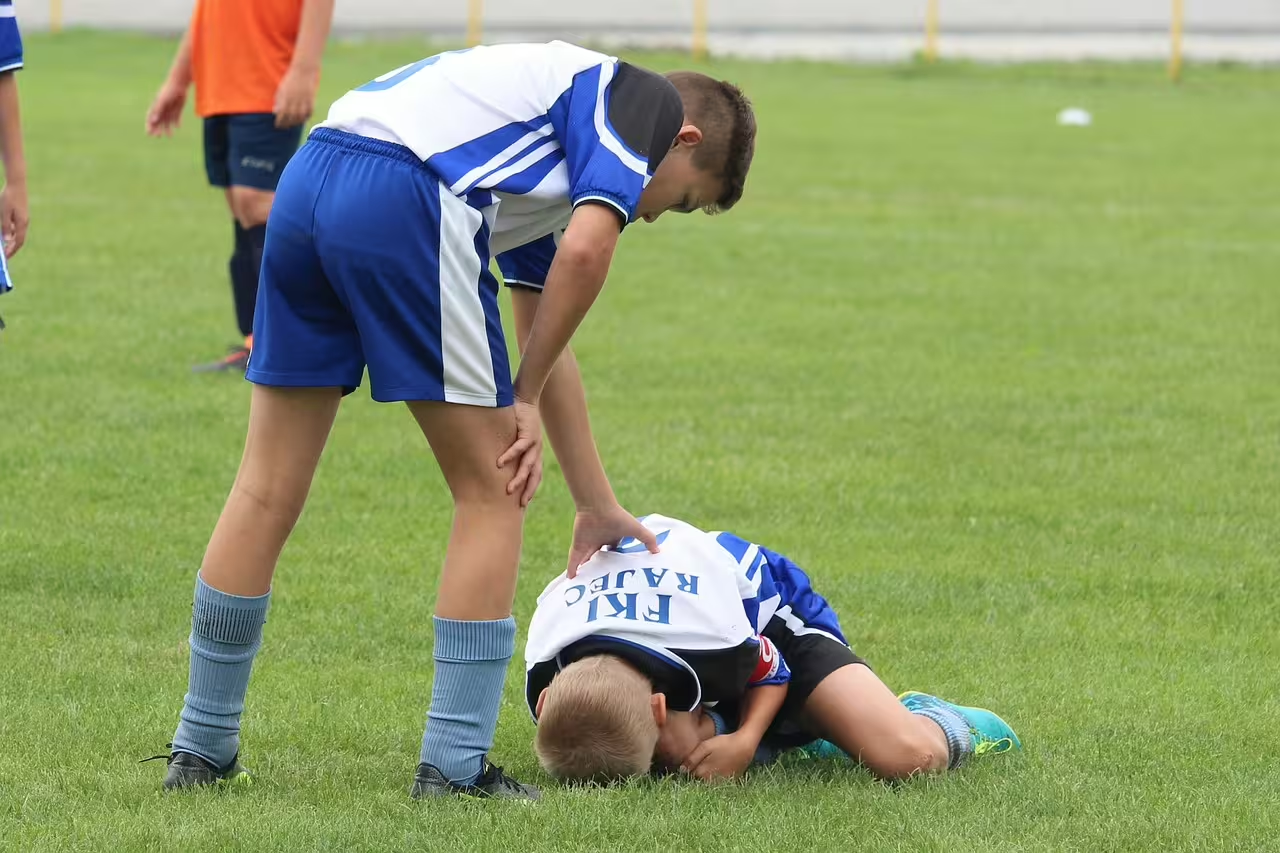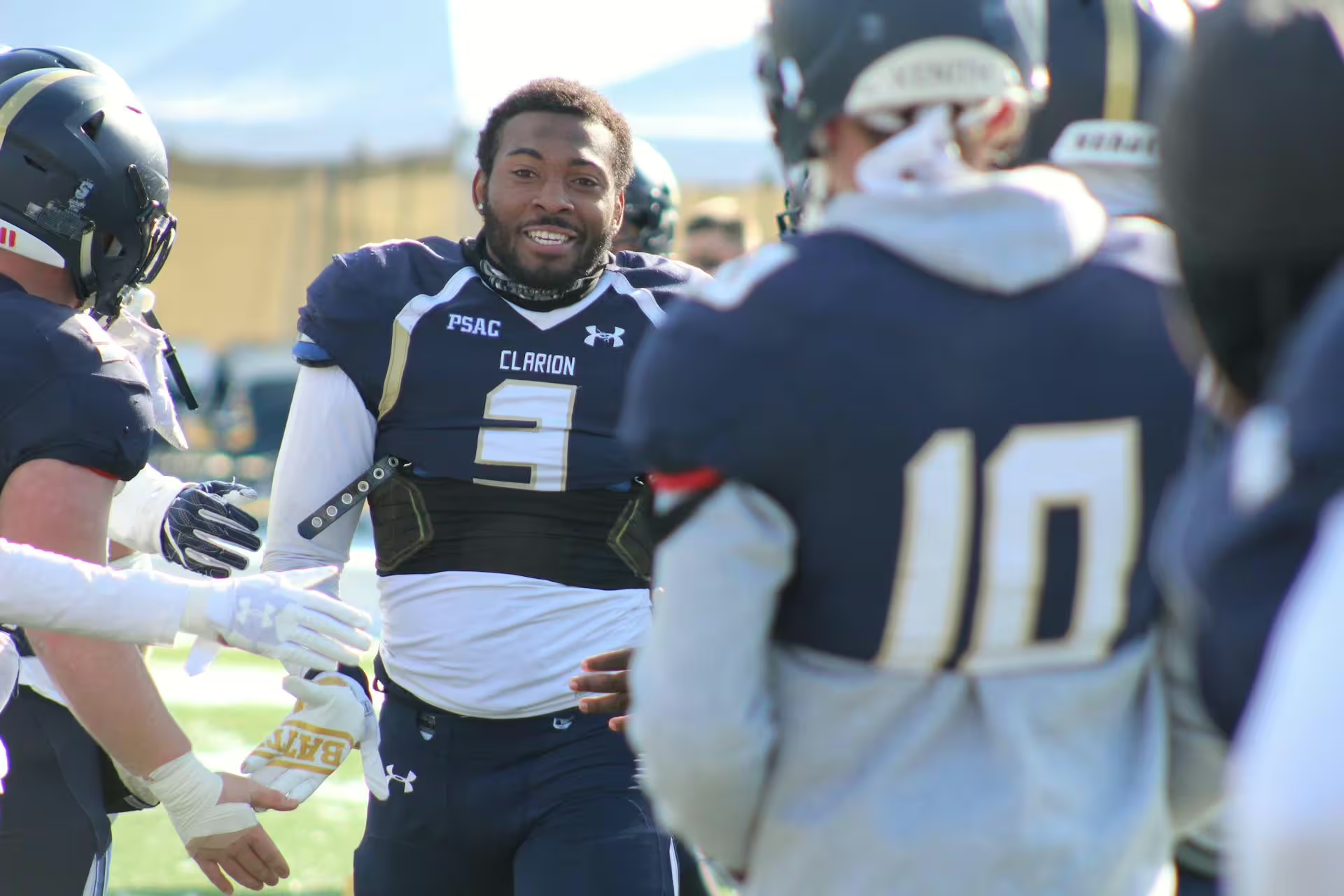Getting ready for a new youth sports season can be very exciting, not just for the young players but for their family as well. If your child has special needs or disabilities, however, this exciting time might also bring a unique set of emotions and challenges for all of you to bear. Parents, for their part, might feel a mix of pride, worry, anticipation, and hope as they prepare for their child to take on this new adventure. The child might feel something similar, though they may not always be emotionally or intellectually equipped to deal with it on their own.
The good news in all of this is that, with thoughtful planning and support, sports can be an enriching and joyful experience for any child, regardless of their innate challenges. As a parent, you likely already know how much preparation goes into any new activity for your child; from doctor’s visits to therapy appointments, school meetings, and many more. Nevertheless, starting a sports season brings a new dimension.
You may wonder a number of things such as: Will the coaches understand my child’s needs? Will my child feel included? Will they enjoy themselves? These are common and valid questions for parents to ask themselves. After all, every child is unique and so is their journey into the world of sports.
Fortunately, the world is becoming much more inclusive these days. Many leagues and communities are following that trend, offering adaptive sports programs or making accommodations within mainstream teams. We learn more about the world of disability and the various challenges that face many of today’s young people with each new case and scientific study. As a result, the world of youth sports is evolving in ways that welcome and celebrate children of all abilities. Thus, with the right support and the right league, your child can develop not just physical skills, but also confidence, independence, and a sense of belonging that bygone generations may not have had access to.
It should also be noted that participation in youth sports can positively impact family life in a very real way. It opens up many opportunities for children to connect with other families, build a support network, and create joyful memories that go well beyond the sports field.
In this article, we will guide parents through everything they need to know about helping their child with special needs get ready for their first sports season. We will teach parents how to choose the right activity, help their kid to build real, lasting confidence, communicate with coaches, and celebrate every success along the way.

Understanding the Benefits of Sports for Children with Special Needs
Before diving into the the nitty-gritty, how-to steps, it’s important that parents recognize why sports can be so valuable for children with special needs. Physical activity goes beyond building muscle or improving a kid’s coordination. Sports offers countless developmental, emotional, and social benefits, especially when taken up at an early stage of development:
Improved motor skills: Sports help children enhance their sense of balance, physical strength, and coordination.
Social interaction: Being part of a team is a great way to foster friendships, cooperation, and communication among young people.
Boosted self-esteem: Mastering new skills and achieving goals builds confidence, which is highly pertinent for children that already face other challenges on a daily basis.
Routine and structure: Routine is really important for many children and those with special needs are no different. The natural routine extant in youth sports, particularly the regular practices and games, helps create predictable routines for you and your child.
Stress relief: Physical activity is a great outlet for added stress, anxiety, or an influx of energy.
For many kids, the chance to play, compete, and belong to a team is also an added source of pride and joy.
Choose the Right Sport
The first step in the process is to decide which sport best suits your child. Every child is unique, they have their own interests, strengths, weaknesses, and physical abilities; and all of these are considerations that should be taken into account. You might not realize it right away but finding the right sport is the foundation of a positive experience for a child. Consider your child’s many attributes when exploring options and utilize the tips below if you need help deciding:
Talk to your child: Ask your child what they’re most interested in doing. Remember that their enthusiasm matters more than anything else when it comes to finding the right activities to match their specific tastes.
Start small: Parents should look for programs that offer trial classes or short sessions to begin.
Match the sport to your child’s strengths: One good example is swimming. This sport is a great low-impact activity for kids who benefit from less joint pressure. Track and field are also good, as these events offer clear, individual goals.
Research adaptive programs: Parents that haven’t had occasion to look into it may not be aware that many communities offer inclusive or adaptive sports leagues for local kids. These programs are often tailored to children with various needs.
Consult with professionals: Many professionals that parents and kids with special needs encounter on a regular basis might be helpful in this area. Occupational therapists, physical therapists, or special education teachers can often provide valuable insights into which sports might be a good fit for a specific child in their purview.
Prepare Emotionally and Mentally
Starting something new can be overwhelming for any child and those that have already faced a number of challenges in their young lives might be even more affected. This is why it’s especially important to properly emotionally prepare a child with special needs for any new activity. Remember, this process sometimes takes more time than many parents might surmise and so it should be approached with care:
Explain what to expect: Parents should use clear language and visual aids (like social stories or pictures) in their explanations. These tools will help kids to visualize what practices and games will look like when they encounter them.
Visit the facility ahead of time: Take a trip to see the place beforehand. Let your child walk around the field, court, or gym to get familiar with the space itself.
Meet the coach early: A friendly introduction with your child’s coach or sports support staff can go a long way in easing initial anxiety.
Practice at home: Take some time to role-play different scenarios—like putting on a uniform, waiting their turn, or trying a new skill. Any prep time is going to be time well spent when it comes to children with special needs.
Talk about feelings: Be gentle with your child’s initial nervousness. Remember to validate any fears or excitement they may experience and reassure them that it’s okay to feel nervous. Reaffirm that you’ll support them every step of the way.
Communicate with Coaches and Staff
Some parents might be nervous about being too forthcoming with your child’s coach when it comes to concerns about their welfare, but those parents should disavow themselves of that concern. In fact, open and honest communication with coaches is key to a successful season and a successful sports experience for your child. Remember, coaches want to help your kid to succeed, but they need to understand that child’s unique needs first.
Set up a meeting before the season begins: Share important information about your child’s strengths, challenges, and communication style with their coaches before the season starts.
Discuss any accommodations: For example, if your child uses visual schedules, noise-canceling headphones, or needs extra time for transitions, let the coach know so that they can prepare for those circumstances.
Keep lines of communication open: Provide your coach with updates throughout the season and ask for them in return. Celebrate progress and discuss any issues as they arise.
Encourage a team approach: Coaches, parents, and support staff should work together to create a positive environment for all players.
Gear Up for Success
Having the right equipment can make a big difference in your child’s comfort, safety, and success in sports. Depending on the sport, here are some things parents will need to consider:
Uniforms: Make sure clothing is comfortable and sensory-friendly. You may need to adapt materials or tags to suit certain preferences.
Shoes and gear: Choose shoes with proper support and gear that fits well. Ask coaches and occupational therapists if any modifications are available or needed.
Safety items: Note that for some children, protective gear like helmets or pads may need extra padding or custom fitting.
Water and snacks: Pack familiar, easy-to-eat snacks and drinks for your child to imbibe during practice. This is especially pertinent if your child has specific dietary needs.
Practice using any new gear at home before the first practice. The same is true for uniforms. Letting them get used to new sensations is important for children with sensory issues. Remember, the more familiar your child is with the equipment, the more comfortable they’ll feel on the field of play.
Support Social and Team Skills

Some people don’t realize it, but sports are as much about relationships as they are about physical activity. Helping children with special needs build social skills is one of the biggest challenges they will encounter in their life and thankfully, sports offers them a great way to do just that. Spending time with other children, following their example, and understanding team dynamics will enhance their experience and make them more well-rounded for other social interactions they are likely to encounter throughout their lives.
Teach sportsmanship: Role-play cheering on teammates, taking turns, and handling winning and losing. This may seem silly at first but many children may never have experienced these simple acts.
Encourage teamwork: Emphasize the value of working together and helping others.
Create opportunities for bonding: Invite teammates for playdates or team outings so that your child can become closer with their new friends.
Model positive behavior: Lead bu example, parents! Let your child see you supporting the team, clapping for others, and staying calm during stressful moments.
If your child has difficulty with social cues, a peer buddy or aide could be very helpful in facilitating interactions during practices and games.
Set Realistic Expectations and Celebrate Every Win
It’s natural for parents to hope that their child will thrive right away, but it’s important to remember that success looks different for every child. Focus on progress, not perfection; both you and your child will be better for it.
Celebrate effort over outcome: Whether your child makes a basket, runs a lap, or simply participates without fear, acknowledge their courage and commitment. Celebration is a key component of confidence.
Recognize small victories: Every step forward is a step worth celebrating—from trying a new drill to staying focused during practice.
Keep perspective: There may be setbacks or challenging days for your child and that’s okay. The important thing is to be patient, teach them to be patient, and keep encouraging them to do more.
Use positive reinforcement: Praise, high-fives, stickers, or small rewards can help motivate and build confidence in young children.
Stay Involved and Advocate
Your support doesn’t end once the season starts. Parents that stay actively involved illustrate their dedication. Show your kid that you’re invested in their success by:
Attend practices and games: Your presence can provide comfort and motivation for them to do their best and continue trying their hardest.
Volunteer if possible: Helping out on the sidelines or organizing team events strengthens your connection; just be sure not to get too involved or butt heads with coaches.
Monitor progress: That said, be sure to stay in touch with coaches and note any changes in your child’s enjoyment or behavior.
Advocate when needed: If something isn’t working, speak up. Ask for changes or support in a respectful and constructive way; do not demand things. Remember, we catch more flies with honey than with vinegar.

Cultured Athlete Says…
As you can see, preparing your child with special needs for their first sports season is a journey filled with opportunity and often, uncertainty. Sure, there will be challenges, but also growth, joy, and countless moments of pride. With the right support, planning, and encouragement, sports can become a lasting and positive part of your child’s life.
Remember, a child’s success isn’t measured by scores or medals, but by the smile on your child’s face as they play, learn, and grow in ways you never even imagined. You’re not just preparing for a season—you’re opening the door to a brand new world of possibilities. Why, in no time at all, you too will be cheering from the sidelines, watching your child grow in ways you never imagined, and sharing moments of triumph both big and small!
Discover more from CulturedAthlete
Subscribe to get the latest posts sent to your email.






